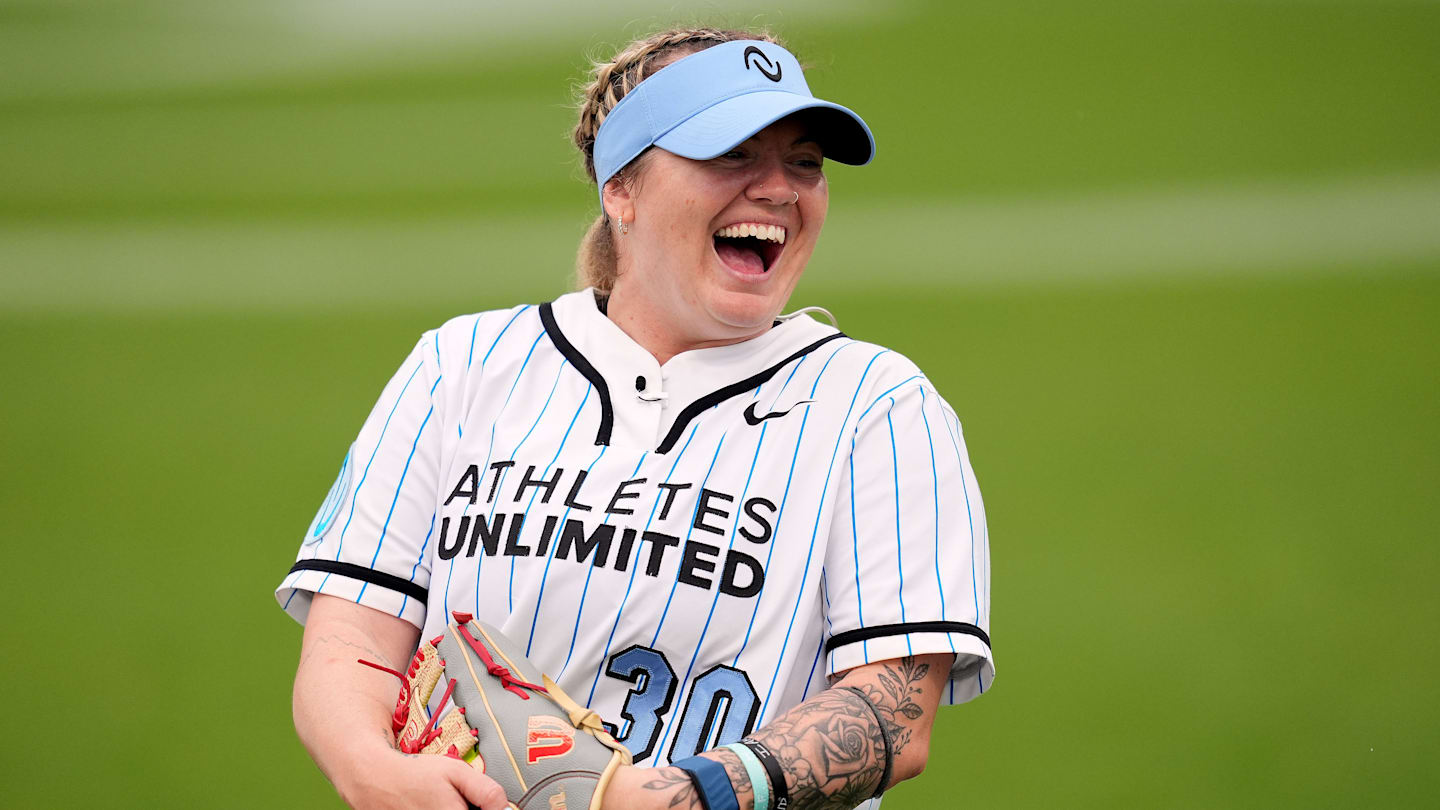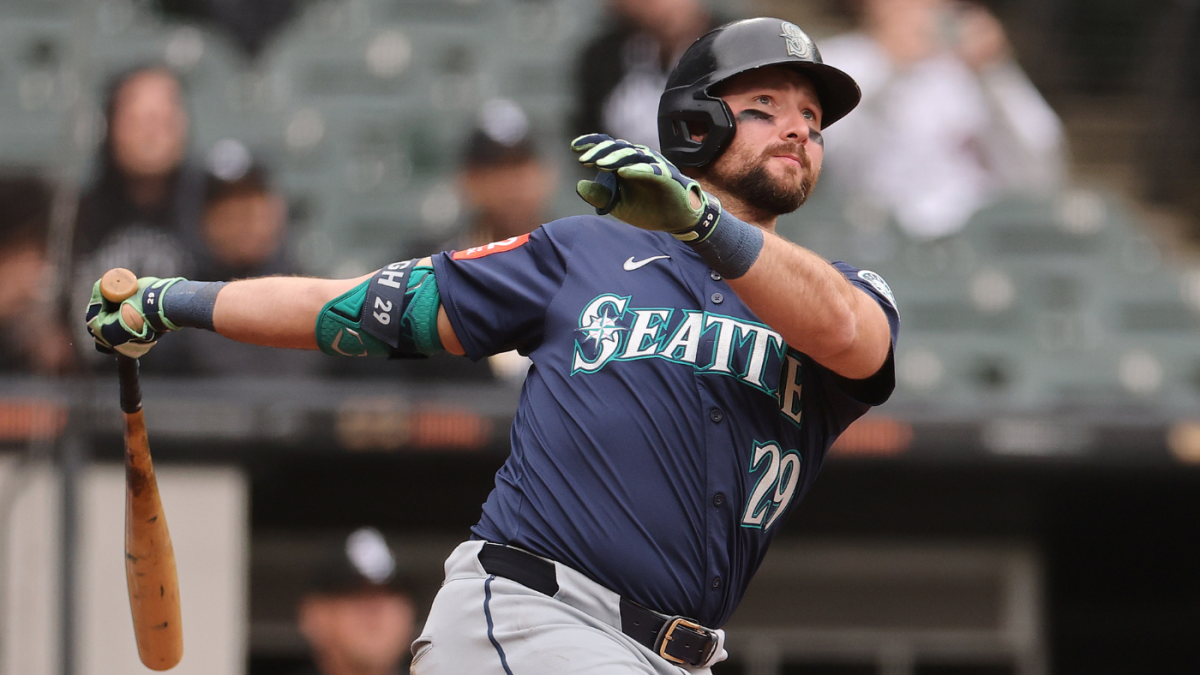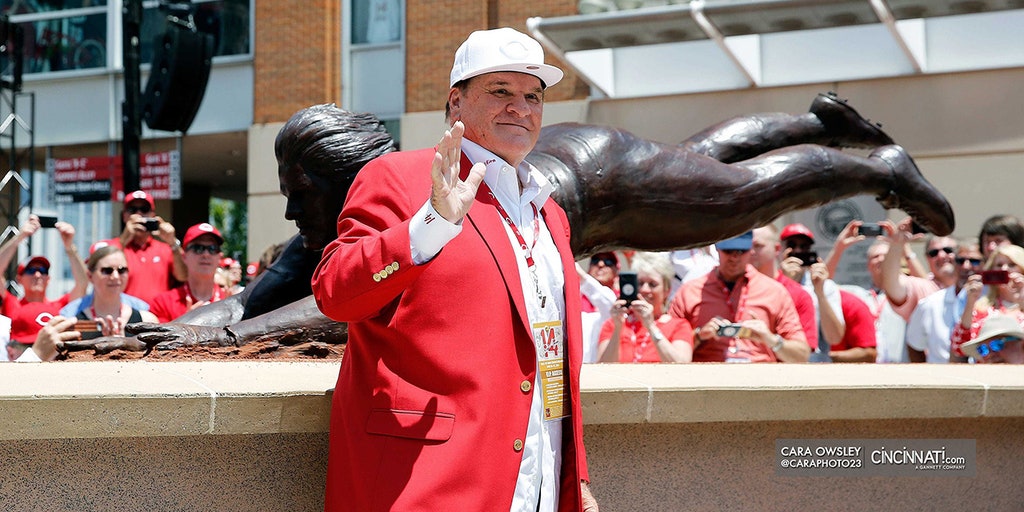The Athletes Unlimited Softball League will begin play in June with something that none of its predecessor leagues ever had. It will have the financial support of MLB.
The professional softball landscape has historically been fragmented and shaky. But as the sport has grown on the youth and college levels over the last few years—against the backdrop of a larger swell in women’s sports—MLB became increasingly interested in growing its involvement here. It weighed the idea of starting its own softball league. But it decided instead to invest in the existing start-up Athletes Unlimited.
It marks MLB’s first major involvement in women’s sports at a time when more and more organizations are trying to capitalize on recent growth opportunities in that landscape. It has the potential to create a dramatic shift in professional softball. And it presents a different model for an established men’s league stepping into women’s sports. Rather than starting a league and retaining majority ownership—as the NBA did with the WNBA—or taking modest steps toward collaboration without any financial relationship—as the NHL has done with the PWHL—MLB is taking an equity stake in the AUSL.
MLB and AUSL officially announced the investment on Thursday. Its terms were not disclosed, but sources close to the deal confirmed that it was eight figures, which was reported by ESPN as more than a 20% stake for MLB.
“If you look at Major League Baseball historically, something like this is not taken lightly,” says MLB chief baseball development officer Tony Reagins. “We’re leaning in on all parts of our business to make this a sustainable league.”
MLB and Athletes Unlimited executives first met in 2019. That was shortly before the organization launched with a fairly radical structure: Rather than establish a set of teams for a traditional league, Athletes Unlimited would rank players individually on a leaderboard by assigning points for almost everything that could be done on a softball field, shuffling team assignments each week accordingly over a brief season. Those early conversations included Kim Ng, then senior vice president of baseball operations for MLB, who was also a former college softball player who had worked on various softball initiatives for the league.
There was nothing concrete in those initial talks. Athletes Unlimited began play soon after with its signature model in 2020. (It started with softball before expanding to volleyball, basketball and lacrosse, all for women.) Ng left the MLB commissioner’s office to become the general manager of the Miami Marlins. Over the next few years, Athletes Unlimited experimented with format and presentation. But crucially for a sport like softball, where professional opportunities have come and gone and rarely paid more than four figures in the U.S., the organization remained a consistent opportunity. It was certainly not a traditional softball league or season. But it paid better than many of its predecessors, it had several broadcast partners, and it offered a stable professional environment in a sport where players have never been able to take that for granted.
With investment and interest growing across women’s sports, MLB and Athletes Unlimited struck up talks again last spring. The initial goal was not an equity stake or major investment: “Where we’ve ended up, honestly, far surpasses what I could have expected even a year ago,” says Athletes Unlimited CEO Jon Patricof. But the last year saw two major turning points. Athletes Unlimited announced that it would launch a more traditional softball league in 2025, beginning with four teams barnstorming this summer around the United States, with plans to expand to six teams anchored in specific cities in ’26. And it brought on Ng, first in the role of strategic advisor and then as commissioner of the newly announced league, the AUSL.
Ng worked in MLB for 30 years and had been widely respected by peers across the league. Her addition was key for the AUSL.
“We’d watched the operation from afar, saw how they conducted business, saw the creativity, the innovation, how they utilize their players—those things were interesting,” Reagins says. “Kim comes on board, and the comfort level just grew in terms of the structure, their stability. We felt they could be a partner that we could stand alongside long-term.”
It represents a meaningful opportunity for Ng. “It’s very personal,” she says of working in softball. It also represents an intriguing challenge for the longtime executive.
Professional softball in the U.S. has traditionally operated with very limited infrastructure and with hardly any external investment. National Pro Fastpitch was the main domestic option for American players for nearly 20 years. But teams popped up and disappeared year by year, and the pay was so low that players could not afford to treat the league as a serious, full-time gig. (The average salary was $5,000 in NPF’s last full season of operation in 2019.) There is a long history of independent teams and smaller leagues. Elite players have often left to pursue more lucrative opportunities in Japan. There has never been one stable league to consistently attract talent and offer growth opportunities for the sport.
“We’ve never had one North Star where an athlete could say, I want to play there, I want to be there, I want to continue my career there,” says retired player Natasha Watley, who won Olympic gold with Team USA in 2004 and went on to be the all-time batting average leader in NPF and to play in Japan. “I’m thinking this is going to be it.”
Watley has spent years as MLB’s youth softball ambassador. She is now an advisor to the AUSL.
The question is how much the sport can grow with a consistent professional league. Ng points out that growth in college softball has never had a meaningful chance to translate to growth in the pros: “For baseball, they get to see their players go on from college… Ours are done in four years. That’s hard to get a game to grow.” The Women’s College World Series Finals had a record average viewership of 2 million in 2024. Figuring out how to harness and tap into even just a fraction of that interest will be critical.
Many of the AUSL barnstorming locations this summer will be in college softball hotbeds, such as Norman, Okla. and Tuscaloosa, Ala. They will also play in Rosemont, Ill., just outside Chicago, where previous softball games were held for Athletes Unlimited.
MLB’s eight-figure investment provides a level of capital the sport had never previously seen in the U.S. Patricof says that money will be used for purposes and departments across the league. (The average player salary for the AUSL this year will be $45,000.) And beyond the funding itself, MLB’s partnership also signifies a chance for visibility, crossover marketing, and corporate sponsorship opportunities that have previously not been on the table for pro softball.
“Those are huge things that money can’t buy,” Patricof says.
The AUSL already had a broadcast deal to air 33 games this summer on ESPN. The MLB partnership will include games aired on MLB Network, too. Patricof says that all games will be on linear TV.
Both sides of the partnership say their time horizons are long here.
“MLB is going in eyes wide open,” Patricof says. “No one’s looking to get involved to turn a profit in the short term… This is going to require sustained investment over a long period of time. There’s a lot of work to do to build out the commercial side of this business.”
And the fact that it remains its own distinct business is meaningful. Both sides have said they believe the AUSL will have a better chance of success as its own league—rather than as one that might have been purchased outright and run by MLB. That means a certain degree of operational independence and nimbleness, of course, but also a chance to build a more distinct brand.
The investment here is also notable for what it is not. MLB’s youth initiatives in recent years have included both softball and girls’ baseball. The Women’s Professional Baseball League will launch with six teams in 2026. But the choice for investment here was softball.
“We feel the talent pool right now is not as deep as softball,” Reagins says of women’s baseball. “We’re working on building a pipeline. The infrastructure is not as structured as softball, so we have a ways to go in terms of women’s baseball, but it’s something that we’re going to continue to lean into.”



